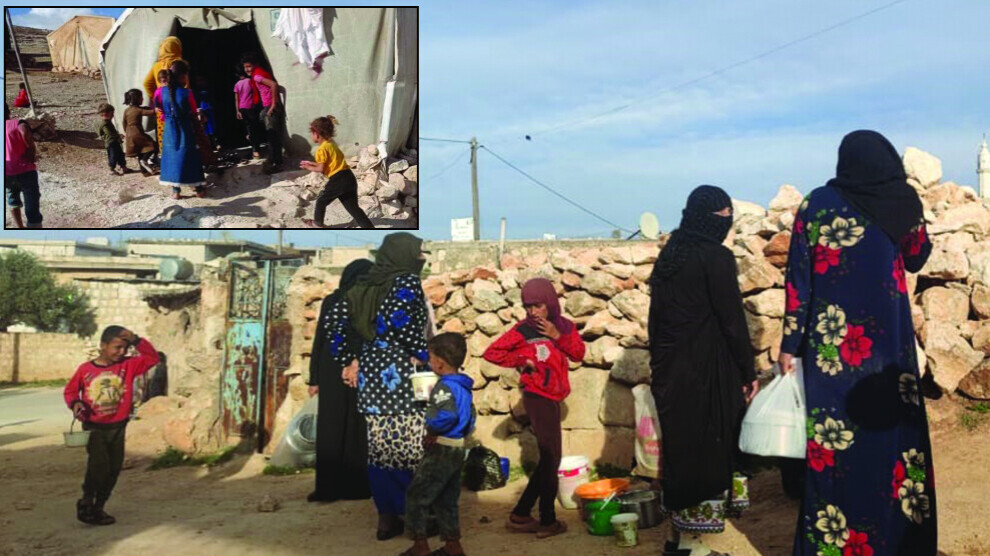Women of Idlib: We have no right to decide
Women of Idlib have no right to make decisions about their own lives and face restrictions and all kinds of discrimination.

HADEEL Al-OMAR
Idlib- Due to deepening inequality in Idlib, women are subjected to all kinds of discrimination and restrictions by their families and in the public spaces. They are deprived of their rights due to traditions and customs, even their right to make decisions about their own lives and their children’s lives.
44-year-old Rama Al-Hussein thinks that women are subjected to restrictions by their families. “The women’s rights are ignored although they make up almost half of Idlib’s population due to the patriarchal mindset in society,” she told NuJINHA.
‘The curriculum reinforces social inequalities’
According to 38-year-old Fatima Al-Issa, the curriculum reinforces social inequalities in Idlib. “At school, the children learn that women can only be housewives weaving, cooking, washing, cleaning and taking care of their children. They learn that only men can become doctors, leaders and presidents. Due to the curriculum, women’s roles in society are underestimated.”
‘I didn't even have a say in the marriage of my daughter’
37-year-old Sara Abdulkarim has no say in her family. “My husband makes decisions about everything. He forced our daughter into marriage when she was only 15. I could not prevent this marriage because I didn't even have a say in the marriage of my daughter. My husband destroyed our daughter’s future when she was just a child.”
‘They are subjected to all forms of violence’
NuJINHA spoke to Yasmin Al-Alloush, a psychosocial counselor in Idlib, about the restrictions and discrimination faced by the women of Idlib. “Women of Idlib are subjected to all forms of violence such as psychological, sexual and economic violence,” she said. “Traditions and customs cause women to suffer from inequalities. The women of Idlib need awareness-raising activities about their rights. Women should be supported to enjoy their rights and participate in the labor force. Vocational training courses can be provided to them so that they can boost self-confidence and reveal their abilities.”
